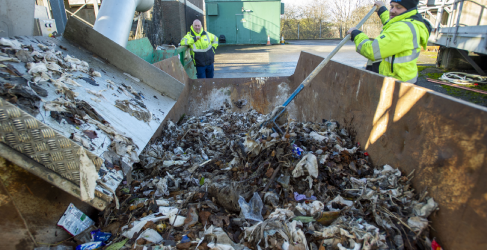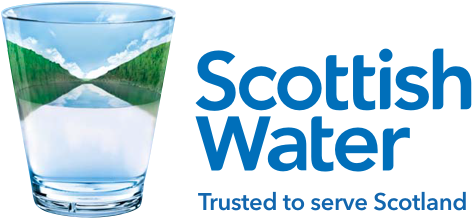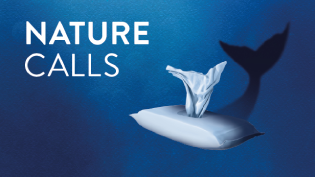Statement on Plastics


Scottish Water Aims to Reduce the Impact of Plastic on the Environment
Scottish Water collects and treats 945 million litres of waste water every day from households, businesses, industry and drainage from roads and roofs. Inappropriate disposal of plastic items is a societal challenge and waste water systems have been identified as a pathway for plastics to enter the water environment.
From a household perspective, the waste water system was not designed to cope with anything other than the 3Ps (pee, poo and toilet paper). Households should only put the 3Ps down the toilet.
Use of plastics worldwide has increased to 430 million tonnes of plastic produced in 2022 *(i). The unintended consequence is that plastic waste has become ubiquitous in the environment.
It is Scottish Water’s intention to reduce the quantity of plastics leaving our systems, therefore providing greater protection of the environment. To achieve this, there needs to be a focus on source control on the quantity of plastics entering our systems and how it is managed once it is there.
Plastics can come into the waste water system from inappropriate disposal of wet wipes, sanitary towels and other sanitary care products being flushed down the toilet. This can cause blockages and can obstruct pumps within our waste water systems which can reduce sewer capacity and may lead to flooding or discharges into the environment.
As well as these larger items, microplastics (plastic smaller than 5mm in size) can enter our waste water system from road run-off (containing wear from vehicle tyres and road paint), from the breakdown of larger plastic items and from clothes washing.
In 2022, there were around 36,000 sewer blockages within Scotland’s public waste water system, over 80% of which were due to inappropriate disposal of items such as wet wipes and sanitary products.
Screens within the network and at wastewater treatment works removed 7,100 tonnes of grit and sewage related debris in 2022, which contains a significant proportion of plastic material. Unfortunately, not all plastics can be removed and may end up in the environment.
Actions by Scottish Water
Scottish Water considers ‘prevention’ (reduction in inappropriate disposal of plastics into the waste water system) likely to be the best approach to reducing impact. A preventative approach may include customer education and awareness campaigns and influencing policy which includes product labelling, improved product design and reducing the reliance on single use plastic items.
- Customer Awareness Campaign
Scottish Water launched its public awareness campaign ‘Nature Calls’ to raise awareness of the problems caused by inappropriate disposal of plastic items into the waste water system. The campaign aims to reduce the number of sewer blockages and to protect the environment. It calls on the public to “follow the three Ps rule and only flush Pee, Poo, and Toilet Paper”, “bin the wipes”, and to support a ban on wipes containing plastic.
- Influencing policy
Scottish Water is working to influence policy in relation to banning wet wipes containing plastic and this can be seen in the Scottish Government consultation response on “Tackling Scotland’s Throwaway Culture Introducing Market Restrictions on Problematic Single-Use Plastic Items” and on flushability claims through the response to the Competition and Marketing Authority on “Draft Guidance on Environmental Claims on Goods and Services”.
Future opportunities to further reduce plastic
Scottish Water would welcome UK-wide initiatives to:
- Ban the manufacture, sale and supply of wipes containing plastic (moist toilet tissue, facial wipes, nappy wipes and cleaning wipes) and those that cause blockages which do not comply with the Water Industry Specification 4-02-06*(ii). This specification ensures that wipes do not contain plastic and will not cause a blockage within the sewer if inappropriately flushed.
- Prevent the use of the term “flushable” on consumer packaging of products, which could be misleading for customers.
- Clearly label all consumer items, which have the potential to enter the waste water system, with the correct disposal / recycling action. For example, single use wet wipes, sanitary products, nappies, “dispose in the bin”.
- In addition, for all consumer items containing plastics which might find their way into waste water systems, to be labelled with “plastic in product”, “do not flush”, and “harms the environment”.

Example of clear labelling on consumer products

Example of clear labelling on consumer products
Research on plastic
Scottish Water is working with the Water Industry across the UK & Europe, UK Water Industry Research Limited*(iii) and academic institutions to more fully understand the sources of, impacts from and behaviours of microplastics in our water and waste water systems. This will include consideration of appropriate analytical methods to assess the type, size and quantity of microplastics. We will look to undertake further research and development where necessary to reduce harm and deliver benefits for our customers, communities and the environment.
Scottish Water internal actions to reduce plastic
We are currently working on a plastic audit of our laboratories to review our use of materials to reduce the use of single use plastic items and work on improving recycling of these. Scottish Water has carried out an exercise to reduce office consumables including plastic items.
*(i) United Nations Environment Programme. Turning off the Tap How the world can end plastic pollution and create a circular economy. Executive summary. turning_off_the_tap_ESEN.pdf (unep.org)
*(ii) Water Industry Specification WIS 4-02-06. This provides information on the WIS and products that are plastic free and will not cause a blockage within the sewer
*(iii) Leading the Water Industry Research Agenda (ukwir.org)






